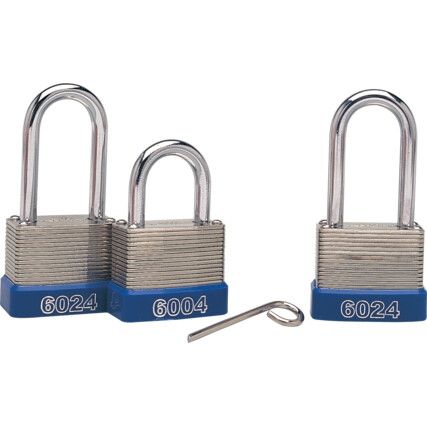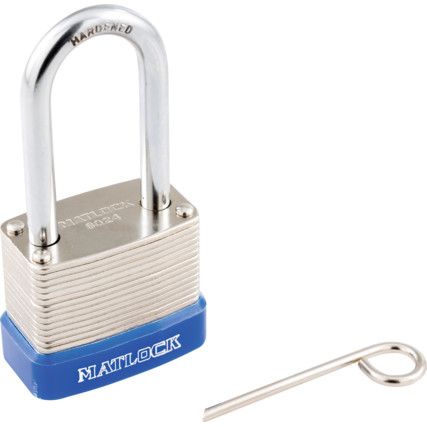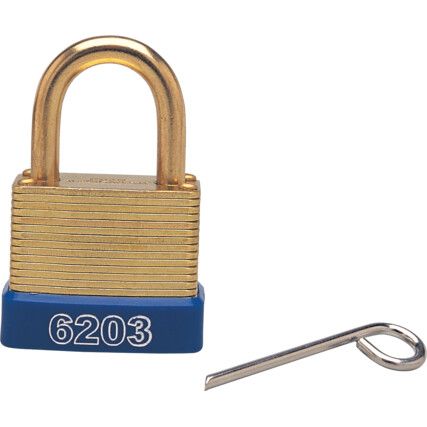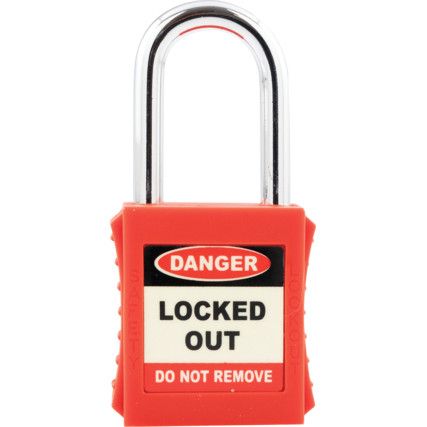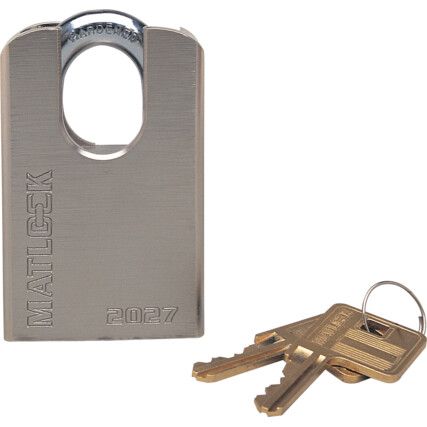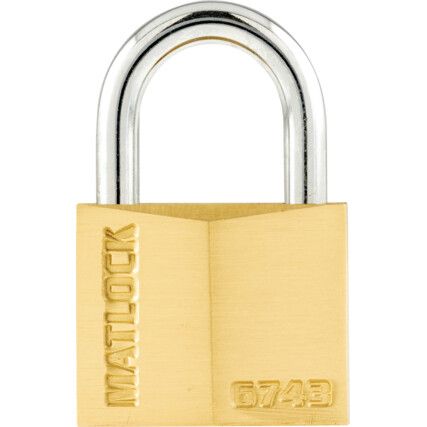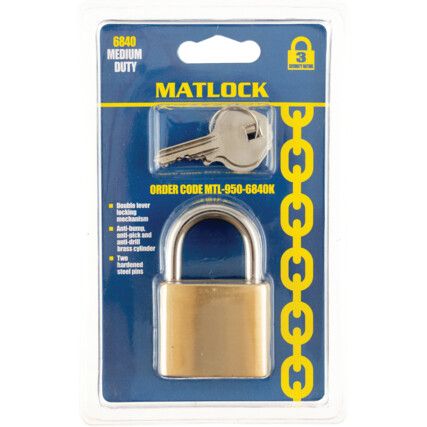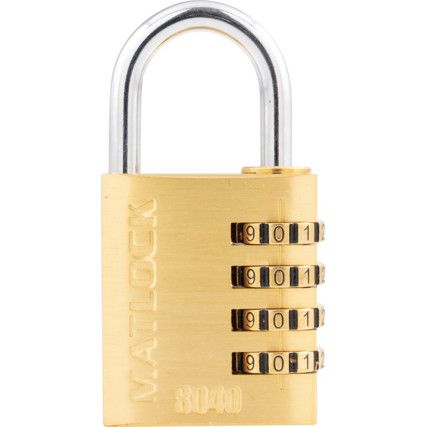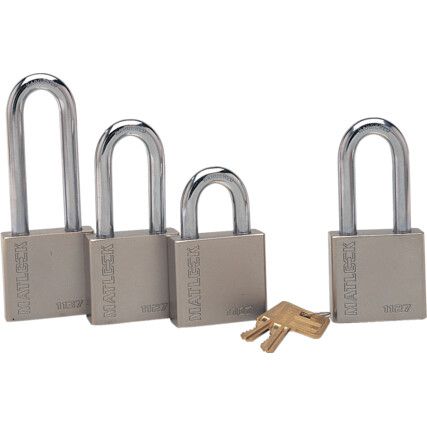Padlocks
Padlocks are an integral security tool that helps secure openings such as doors and gates, as well as adding an additional layer of security to doors that already feature locks. Cromwell stock a range of different types of padlock, from brands like Matlock, Abus, Squire and Brady so you can be assured of a high level of quality.
What are padlocks?
Padlocks consist of a U-shaped shackle, a body which harbours the locking mechanism and the locking barrel (also referred to as a tumbler. When a key is inserted into the barrel and turned the mechanism releases the shackle (secured by notches) allowing the lock to be removed. When locked the mechanism secures the shackle in place preventing it from being pulled upwards to release.
Why padlocks?
Padlocks are used to secure gates, doors although they can be used to secure toolboxes, filing cabinets as well as securing vehicles and machinery with the use of chains. They can be used with or without other, conventional locking mechanisms.
Types of padlocks
• Traditional - These comprise of a standard U-shaped shackle and a square shaped body which contains the locking mechanism. The barrel, where the key inserts is located on the underside of the padlock.
• Closed shackle - These are typically much like a standard traditional padlock, however the there is less of the shackle exposed making them more resistant to tools like bolt cutters and hacksaws etc. Because the exposure of the shackle is limited measurements are key to ensuring you get the right sizing.
• Straight shackle - Instead of a U shaped shackle, these padlocks have a straight shackle. They are useful for things like security shutters as the shackle is more concealed making it more difficult to cut.
• Circular - Another type of closed shackle padlock, circular padlocks, also know as discus padlocks are incredibly secure versions of padlock. There are no springs involved so these locks are particularly useful against would be thieves drilling the lock.
• Combination - These can come in a variety of types and feature a combination lock, negating the requirement for a key.
Considerations when choosing a padlock
• Size - This can primarily depend on the size of the clasp and the weight of the item that you want to secure. For example, a small cupboard would only need small sized padlock with a thinner shackle to protect from opportunists, where as industrial shipping containers would probably require a heavy duty circular padlock to protect from both damage and the use of tools to force open like bolt cutters.
• Type - Some padlocks are more secure than others, so choosing the right type is important depending on application. Securing a motorcycle chain would require a heavy duty padlock, with a closed shackle, not only to deal with the weight of the chain but to combat professional thieves using saws and cutters on the shackle.
Padlock jargon buster
What does CEN approved mean?
Lets break it down...
CEN is a grading approved by insurance companies, that higher security padlocks adhere to ranging from 1-6. It gives an indication of the strength of the padlock through its specifications.
FAQ
How are padlocks measured?
Padlocks are typically measured in body size. The larger the body the thicker and more robust the shackle. It is important to not the body clearance and shackle diameter to ensure suitability for the latch that you intend to use the padlock with.
Can padlocks be cut?
Unfortunately, even with a heavy duty padlock there is not guarantee that they will protect against any individual determined to open it by force. Bolt cutters and circular saws are often used by those attempting to access the contents secured by a padlock. However, in some cases there are more wholesome needs for a padlock to be cut, for instance firefighters may need to gain access to a building secure by a padlock and will cut the lock in this case in order to access the point of the blaze.

